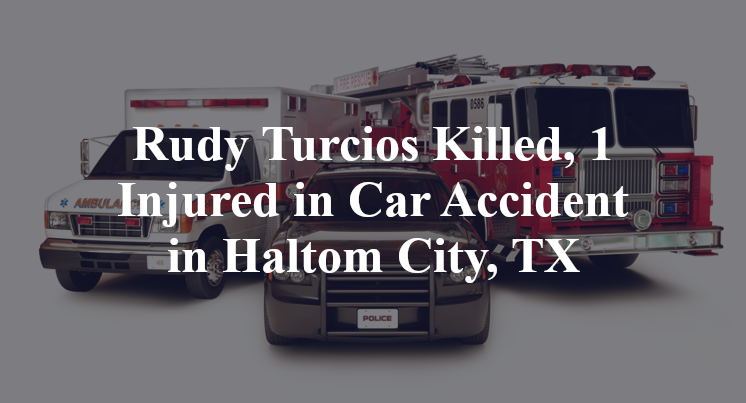Rudy Turcios Killed, 1 Injured in Car Accident in Haltom City, TX
Tarrant County, TX — July 17, 2025, Rudy Misael Turcios was killed and another person was injured in a car accident at abound 6:30 p.m. on the Texpress Tollway.
According to authorities, 24-year-old Rudy Turcios was traveling in an eastbound Dodge Charger on I.H. 820 (Texpress Tollway) in the vicinity of the U.S. 377 bridge when the accident took place.

Officials indicate that, for reasons yet to be confirmed, a collision took place between the front-end of the Charger and the rear-end of a Ford F-350 that had a trailer in tow. The Charger apparently caught on fire over the course of the accident.
Turcios reportedly sustained fatal injuries due to the wreck. The 30-year-old man who had been in the Ford suffered minor injuries, as well, according to reports. Additional details pertaining to this incident are not available at this point in time. The investigation is currently ongoing.
Commentary
When crashes happen on high-speed roads, especially those involving fire and serious injury, the surface details rarely explain the full story. Getting to the root of what went wrong means asking pointed questions—ones that don’t always come up in the first round of investigation.
1. Did the authorities thoroughly investigate the crash?
Two vehicles traveling on a tollway at speed and ending in a fiery crash should prompt a deep-dive investigation. The question is whether investigators analyzed the timing and sequence of the impact. Did they recreate the crash path? Did they examine braking distance, vehicle speeds, and possible lane changes? When trailers are involved, load shift and visibility issues can play a role, but those only become clear if someone takes the time to look beyond simple impact points. The quality of these investigations often hinges on whether the responding team had the tools and training to go beyond a basic report.
2. Has anyone looked into the possibility that a vehicle defect caused the crash?
Anytime a vehicle ignites after impact, that raises a red flag. Was the Charger’s fuel system compromised in a way that shouldn’t have happened under standard crash conditions? Were there pre-impact mechanical problems that kept the driver from avoiding the collision? Even a small malfunction in the steering or braking system can make a critical difference at highway speed. Unless the Charger was subjected to a detailed mechanical inspection, those possibilities are still on the table.
3. Has all the electronic data relating to the crash been collected?
Both vehicles involved likely contain vital electronic records—especially the Charger. Was the car accelerating or braking before the crash? Did the driver attempt to steer away? That kind of data, along with GPS records, phone activity, and tollway camera footage, could provide a clearer timeline. The trailer itself might not hold data, but the truck towing it probably does. If those records haven’t been reviewed and preserved, it’s a missed opportunity to understand what really led to the fatal outcome.
There’s no substitute for thoroughness when one driver doesn’t make it home and another walks away with questions unanswered. Getting the facts right requires more than assumptions—it takes real follow-through, even when the answers aren’t easy to find.
Takeaways:
- A crash with fire and fatalities deserves in-depth scene reconstruction and analysis.
- A faulty fuel or braking system could play a hidden role in rear-end impacts.
- Car systems and tollway cameras may hold critical evidence—if investigators retrieve it in time.

*We appreciate your feedback and welcome anyone to comment on our blog entries, however all visitor blog comments must be approved by the site moderator prior to showing live on the site. By submitting a blog comment you acknowledge that your post may appear live on the site for any visitors to see, pending moderator approval. The operators of this site are not responsible for the accuracy or content of the comments made by site visitors. By submitting a comment, blog post, or email to this site you acknowledge that you may receive a response with regard to your questions or concerns. If you contact Grossman Law Offices using this online form, your message will not create an attorney-client relationship and will not necessarily be treated as privileged or confidential! You should not send sensitive or confidential information via the Internet. Since the Internet is not necessarily a secure environment, it is not possible to ensure that your message sent via the Internet might be kept secure and confidential. When you fill out a contact or comment form, send us an email directly, initiate a chat session or call us, you acknowledge we may use your contact information to communicate with you in the future for marketing purposes, but such marketing will always be done in an ethical way.